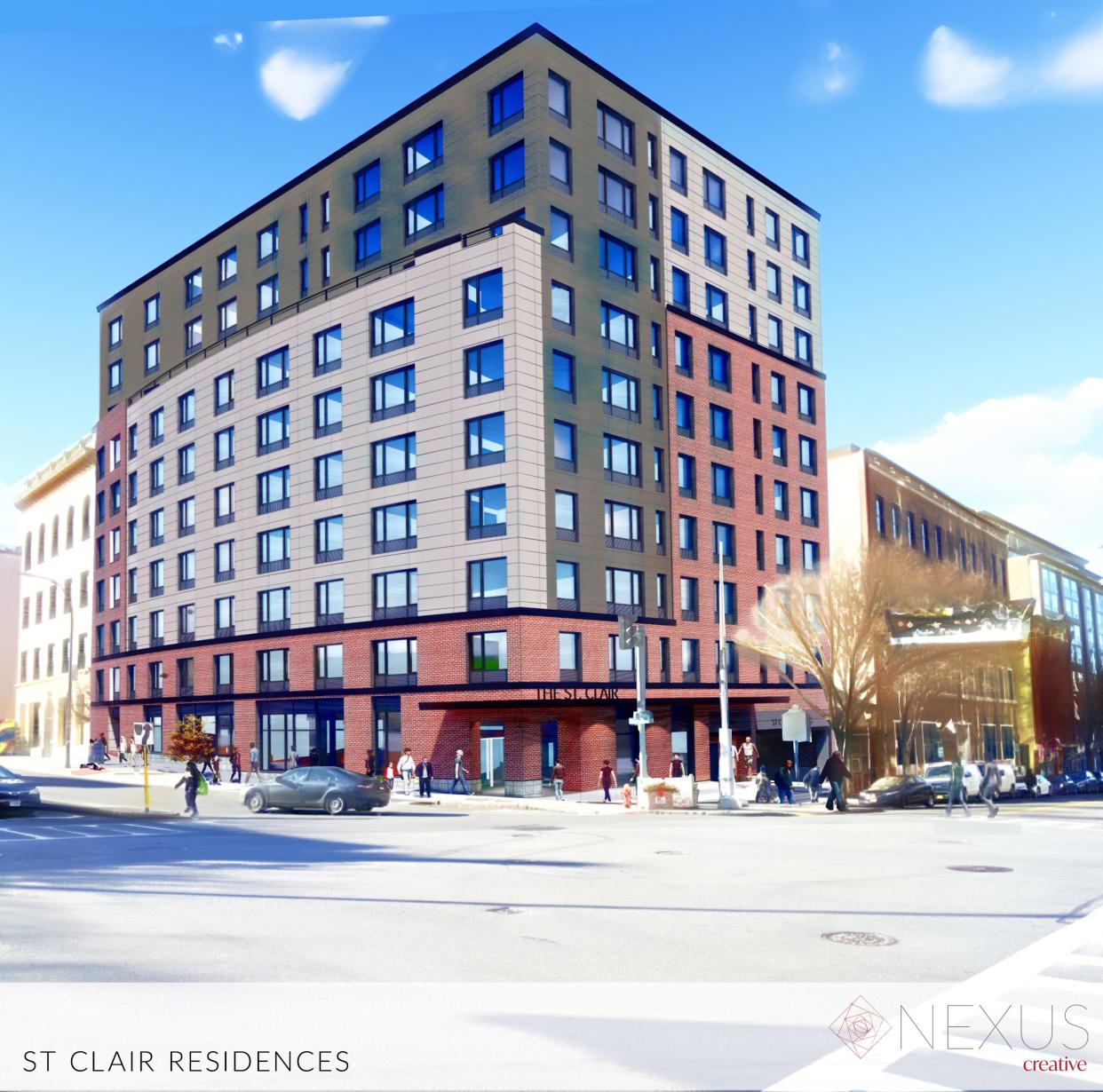NY bill would clear path for religious groups to build affordable homes on their land
Religious groups in New York would be given a streamlined path to build affordable housing on their properties under a bill that would enable them to bypass local zoning and lengthy approval steps.
In areas outside New York City, faith-based organizations would be entitled to build multi-family housing at densities of up to either 30 or 50 units per acre, regardless of the development restrictions for that site. The conditions are that they build at least four homes, adhere to height limits and meet income requirements in the legislation.
Proponents argue the bill would help meet mounting demand for affordable homes while giving religious groups a dual benefit: they can both serve a social good and raise money to support themselves.

State Sen. Andrew Gounardes, a Brooklyn Democrat who introduced the bill in December, said in an interview that it stemmed from brainstorming talks with affordable-housing advocates after Gov. Kathy Hochul's more ambitious plans to jolt home construction fizzled last year. Easing projects by "trusted community partners," as California recently had done, offered one partial solution to New York's home shortage, he said.
Overriding zoning is a politically charged step, sure to rankle local officials in a home-rule state. But Gounardes argued it was needed in his bill because overly restrictive zoning has slowed affordable-housing growth in New York for too long.
"There's got to be a little give-and-take here," he said. "And we think we strike the right balance."
The bill is one of a slew of housing ideas percolating in Albany as alternatives to last year's failed plan. Some are under discussion as part of state budget talks that may conclude this week. Others may be taken up after the budget is done during the remaining weeks before the legislative session ends in June.

The Gounardes bill joins the mix with a swell of early support from lawmakers and numerous religious and housing groups, including Habitat for Humanity, Catholic Charities, the Episcopal Diocese of New York and the Fair Housing Justice Center. Almost 50 Democratic senators and Assembly members have signed on as bill sponsors.
Local leaders are unlikely to join the parade, once they learn about the proposal.
State properties: Hochul wants to build 15K homes on state land to stem shortage. Which locations targeted?
When contacted about the bill last week, two Hudson Valley town supervisors — a Democrat and a Republican — both told the USA Today Network they objected to allowing any housing projects to circumvent their zoning laws or the usual review process.
Clarkstown Supervisor George Hoehmann, a Republican, vowed to fight any attempt to overrule home-rule authority and "dictate the character of our local community." He argued the bill would undermine the extensive studies and rezoning his Rockland County town had done to attract affordable housing to areas that could handle the higher density.

"A one size fits all approach never works," he said.
Greenburgh Supervisor Paul Feiner, a Democrat, said he worried about land owners abusing the law by posing as religious organizations if it's enacted. He said he prefers offering incentives to spur more affordable housing, such as state payments for residents in towns that welcome those projects.
"Once you start saying you don't have to comply with zoning laws and planning laws, then the community is losing a lot in terms of maintaining the character of the community," Feiner said.
Under the bill, religious groups could build up to 30 units per acre in municipalities with fewer than 50,000 residents, and up to 50 units per acre in all larger places except New York City, which would follow a different density measure.

Projects that typically take years to win approval would speed to the finish line. No site-plan review by planning boards and no environmental impact statement — an analysis of potential water and sewer needs, traffic and other factors that's mandated by law and often long and costly for developers. Building permits would have to be issued within 60 days.
The result, proponents say, would be a much shorter and cheaper approval process, without the unpredictability that might deter a religious group from undertaking a project.
Removing those hurdles gives churches, synagogues and others a good way to sell off unused property — and bring in badly needed income for those with dwindling memberships, Gounardes said. It also would boost revenue for the host community, since the properties would no longer be tax-exempt, he added.
Thwarted plans: Hochul's housing push appears dead. Can suburbs solve affordability crisis on their own?
Last year, Hochul made a set of proposals aimed at generating 800,000 new homes statewide over 10 years, twice the rate of the previous decade. They included growth mandates for every municipality that stoked resistance in the suburbs of the Hudson Valley and Long Island, ultimately sinking the plan.
Her modest sequel this year includes plans to build homes on state-owned properties and restricting certain grant programs to communities that have met housing growth targets. Her budget proposal includes $250 million to prepare state-owned sites for redevelopment, with the goal of building up to 15,000 units.
Chris McKenna covers government and politics for The Journal News and USA Today Network. Reach him at cmckenna@gannett.com.
This article originally appeared on Rockland/Westchester Journal News: NY bill speeds affordable housing projects built by religious groups
